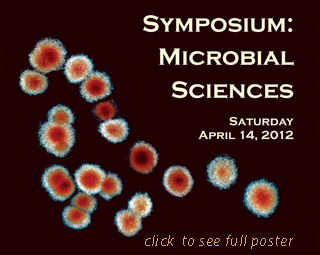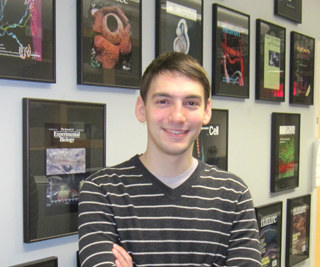Microbes (including bacteria, viruses, fungi, and protists) are ubiquitous on earth and affect every part of our lives. Yet they are mostly invisible, and the vast majority of…
News from 2012
SPREADING THE WEALTH IN THE RETINA
(L to R)Joshua R. Sanes and Jeremy Kay The retina is a lot more complicated than a simple camera. In fact, it acts more like a parallel processing…
ITAY BUDIN RECEIVES WEINTRAUB AWARD FOR OUTSTANDING GRADUATE RESEARCH
Itay Budin Molecular and Cellular Biology graduate student Itay Budin has received the Hutchinson Cancer Research Center’s 2012 Harold M. Weintraub Graduate Student Award, which recognizes outstanding achievement…
TAKING MICROSCOPY TO THE LIMIT — AND BEYOND
(L to R) Susan Mango, Andy McMahon, Bodo Stern, Catherine Dulac, Sam Kunes (seated), Alex Schier, and Jeff Lichtman Even with the most powerful optical microscopes, biologists who…
STRUCTURE OF THE DNA DAMAGE SENSOR FROM BACTERIAL NUCLEOTIDE EXCISION REPAIR
(L to R) David Jeruzalmi, Danaya Pakotiprapha, and Martin Samuels DNA damage is a fact of life for all living organisms. Some have estimated that each of our…
DISSECTING COMPUTATION IN THE DOPAMINE REWARD CIRCUIT
(L to R) Sebastian Haesler, Naoshige Uchida and Jeremiah Cohen In 1954, Olds and Milner discovered that direct, electrical stimulation of particular brain areas was powerfully rewarding: rats…
KEEPING THE FAITH: THE FINAL ACT OF STOPPING CARELESS CELLS
(L-R) Derek Lau and Andrew Murray Faithful chromosome segregation during cell division keeps cells alive and keeps cancer and birth defects at bay. A chromosome’s movements during mitosis…








